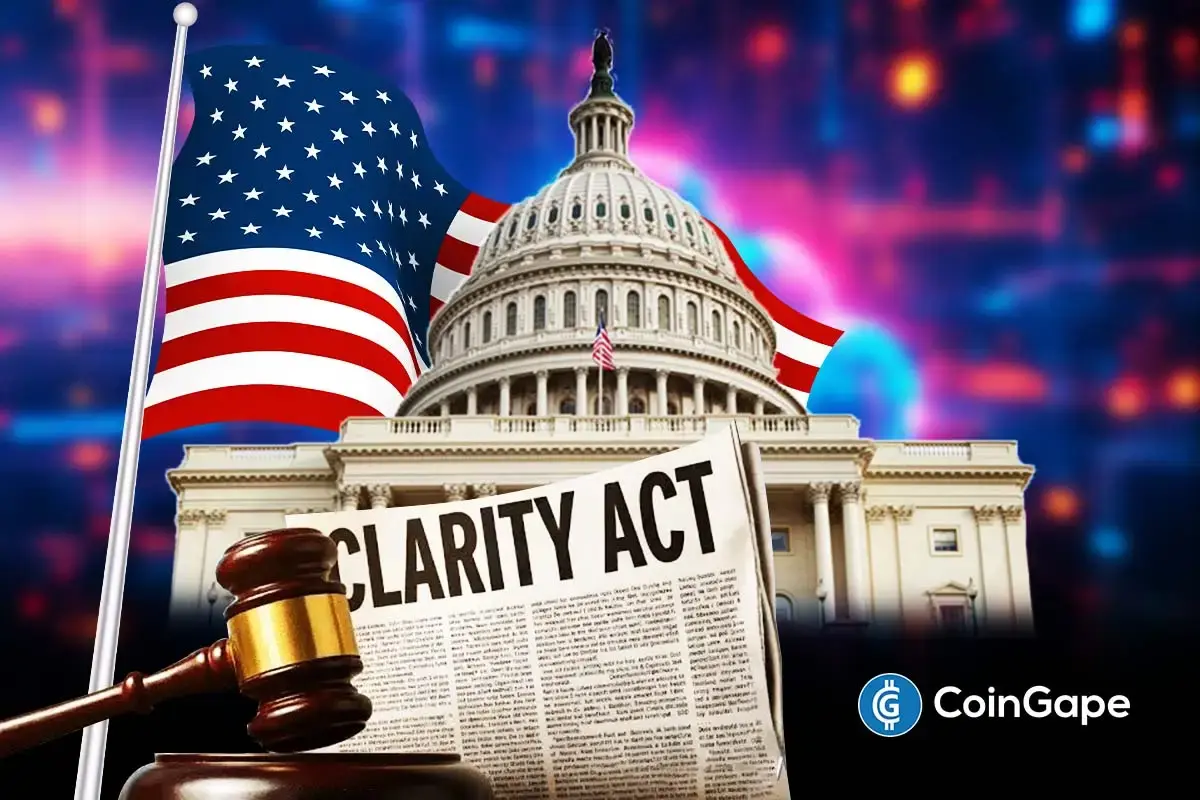US Senate To Have Another Cloture Vote On GENIUS Act This Week

Highlights
- Senate prepares for GENIUS Act vote, aiming to regulate stablecoins with federal oversight for issuers over $10B.
- Amendment #2307 introduces state-level regulation for smaller stablecoin issuers under $10B, ensuring transparency.
- GENIUS Act could ban interest-yielding stablecoins, responding to banking sector concerns over competition with deposits.
The US Senate is gearing up for a crucial vote on the GENIUS Act, a bipartisan bill that aims to establish federal regulations for stablecoins. This vote is likely to occur as soon as this Wednesday, following a procedural motion filed by Senate Majority Leader John Thune. Significantly, the bill is expected to provide a regulatory framework for stablecoin issuers, addressing concerns around consumer protection, financial stability, and transparency.
New Cloture Vote On GENIUS Act This Week
On Monday, Senator John Thune filed a cloture motion on the GENIUS Act, advancing it toward a final vote. The cloture motion is a tool that limits debate and forces a final decision.
This motion kicks off a 30 hour period of debate that allows the senators to discuss at length any detail of the bill. If there are no objections, the Senate is planning to have final votes on both the bill and core amendments as early as midweek.
Some amendments to the legislation still have to be finalized by senators. The Senate leadership, though, continues to push to quickly get the bill moving. The intention of the GENIUS Act is to legalize stablecoins, create regulating guidelines for their use while protecting consumers and ensuring financial stability.
Amendment #2307 Key to The GENIUS Act
The current round of negotiations rests on a very large portion of the bill, namely Amendment #2307, which revises sections of the original proposal. The aim of this amendment was to combine the diverse interests of the banking industry and the digital asset community.
Amendment #2307 is one of the changes that introduces a new system of oversight. Stablecoin issuers with less than $10 billion of market capitalization may opt for state level regulations. The larger issuers would be covered by federal supervision.
The amendment also demands that stablecoins keep their balance sheets transparent by providing monthly attestations and public disclosures that stablecoins are fully backed by US dollars or liquid assets such as Treasury bills.
Debate Over Interest-Yielding Stablecoins and Foreign Tokens
The GENIUS Act’s ban on interest yielding stablecoins is amongst the more controversial provisions included in the act. Traditional banks had always voiced their concerns about these digital tokens, which reward or give interest to their users.
The bill aims to keep these stablecoins from the same markets as ordinary bank deposits, a move informed by the intense lobbying pursued by the banking industry.
What’s more, the GENIUS Act puts certain limits on foreign stablecoins. Under the law, to be allowed in the US market, these tokens would have to meet the same regulatory criteria as stablecoins issued in the country. This provision expresses national security concerns and a desire to make sure that foreign digital assets cannot be a risk to the U.S. financial system.
Next Steps for the Stablecoin Bill
Following the cloture vote, the final version of the GENIUS Act will come up for vote by the Senate. If the bill becomes law, it’ll be sent onto the House of Representatives for more consideration. Over there, lawmakers have been working on a separate but comparable one, the STABLE Act, which is also aimed at regulating stablecoins.
The final version of the GENIUS Act and the STABLE Act will have to be reconciled before a final version is submitted to President Donald Trump for approval. The process is expected to take some time, as lawmakers aim to reconcile the two bills around key issues, such as custody rules and the extent to which federal or state oversight would prevail.
As for the GENIUS Act, there is optimism among senators that the bill will pass this week, particularly because of the bill’s broad bipartisan support. But the last stage hinges on the willingness to reconcile amendments and other remaining issues with the final text.
Play 10,000+ Casino Games at BC Game with Ease
- Instant Deposits And Withdrawals
- Crypto Casino And Sports Betting
- Exclusive Bonuses And Rewards

- Senator Elizabeth Warren Targets Trump-Affiliated World Liberty Financial Over Bank Charter Bid
- JPMorgan Projects Bullish Crypto Market in H2 Following CLARITY Act Approval
- Hong Kong Moves Closer to Crypto Tax Cuts Amid Stablecoin Regulatory Framework
- Popular Analyst Willy Woo Predicts Major Bitcoin Price Crash, Bear Market Bottom Timeline
- Vitalik Buterin Maps Out Quantum Risks as Ethereum Foundation Unveils ‘Strawmap’
- Top 2 Price Predictions Ethereum and Solana Ahead of March 1 Clarity Act Stablecoin Deadline
- Pi Network Price Prediction Ahead of Protocol Upgrades Deadline on March 1
- XRP Price Outlook As Jane Street Lawsuit Sparks Shift in Morning Sell-Off Trend
- Dogecoin, Cardano, and Chainlink Price Prediction As Crypto Market Rebounds
- Will Solana Price Rally to $100 If Bitcoin Reclaims $72K?
- XRP Price Eye $2 Rebound as On-Chain Data Signals Massive Whale Accumulation

 Buy $GGs
Buy $GGs

















